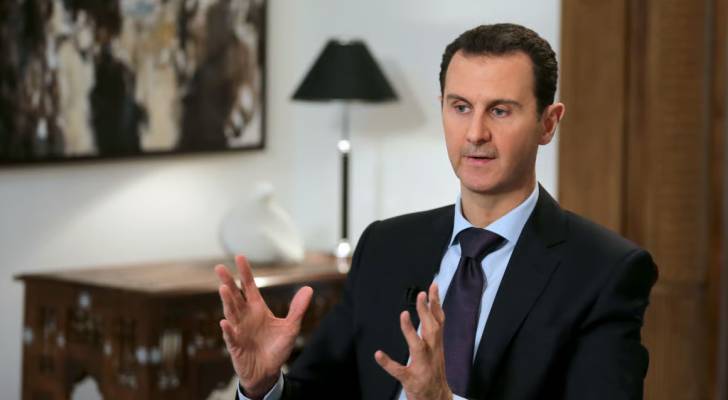Bashar al-Assad Former President of Syria
How Assad’s assets were smuggled in regime’s final days: Reuters investigation
A new investigation by Reuters has uncovered the details of a covert air operation, orchestrated by former Syrian President Bashar al-Assad, to smuggle cash, critical documents, and key members of his inner circle out of Syria in the final days of his regime.
The operation took place in December 2024, as the regime's control over Damascus was quickly crumbling.
According to the report, four flights using a private jet ferried Assad’s valuables and associates from Syria to the United Arab Emirates in the final 48 hours before the regime's fall.
The operation was coordinated by Yasar Ibrahim, Assad’s top economic adviser, who was pivotal in building the regime's financial web. Ibrahim arranged to lease a 13-seat Embraer Legacy 600 jet, registered in Gambia, which made four back-to-back trips during the critical period.
The jet carried at least USD 500,000 in unmarked cash, laptops, hard drives, and sensitive documents related to Assad’s financial network, known internally as “The Group.” This network allegedly spanned key sectors of Syria’s economy, including banking, telecoms, and real estate, many of whose details were stored on the digital files smuggled out of the country.
Operation timeline, Key Figures
The operation began on December 6, 2024, when rebel forces led by Hayat Tahrir al-Sham advanced toward Damascus. At this time, Syrian Air Force Intelligence personnel sealed off the VIP section of the capital’s airport, making it a focal point for the operation. According to multiple sources involved in the mission, Assad’s Republican Guard and Air Force Intelligence were directly involved in securing the departure of the jet.
On the ground, civilian vehicles from the Republican Guard, responsible for protecting Assad, transported high-ranking figures and materials to the waiting aircraft. Sources from the operation confirmed that Assad’s regime orchestrated the flights at the highest level, with orders likely coming directly from Assad himself.
Brigadier-General Ghadeer Ali, head of airport security at Damascus International Airport, reportedly instructed his staff to let Air Force Intelligence handle the plane. “This plane is coming to land and we will deal with it,” Ali said, according to airport staff who were present. “You have not seen this plane.”
The flights continued through December 7 and culminated on December 8, with the final departure from the Russian-operated Hmeimim military air base. That same day, Assad fled Syria for Russia, where he has since been granted political asylum.
Role of Yasar Ibrahim, Smuggling of wealth
Ibrahim, who managed Assad’s financial and economic affairs, played a crucial role in the operation. He oversaw the logistics, leasing of the jet, and the transportation of black duffel bags containing cash, hard drives, and confidential files. His involvement ties directly into the opaque financial network behind Assad’s wealth and power, which has been linked to a series of shell companies and cronies.
Ibrahim has been sanctioned by Western governments for his role in consolidating economic power on behalf of Assad’s regime. The assets smuggled during the operation represent only a fraction of the regime’s overall wealth, which was carefully hidden across various sectors.
The network, referred to as "The Group," is believed to have extended its reach into multiple industries, including real estate, telecoms, and banking, with Ibrahim at the center of it all.
Reuters’ investigation revealed that the operation was conducted under extreme secrecy. Sources from the Syrian intelligence community confirmed that even close family members of Assad were unaware of his whereabouts in the final days of his regime.
Fate of Assad’s assets, Syria’s new leadership
The involvement of Syria’s military and intelligence apparatus, including the Republican Guard and Air Force Intelligence, points to a highly organized and sanctioned operation. While Reuters could not confirm whether Assad personally oversaw every detail of the escape, sources involved in the mission said it could not have happened without his approval.
In the wake of Assad's departure, the new Syrian government under President Ahmed al-Sharaa is working to trace the smuggled assets. A senior official confirmed to Reuters that funds were moved out of Syria in the last days of Assad’s rule, but the full scope and destination of those assets remain under investigation.
Western governments had already imposed sanctions on Assad and Ibrahim for their roles in suppressing the 2011 uprising and for facilitating the consolidation of wealth through illegal networks. However, the continued influence of the regime's financial architecture remains a significant concern for Syria’s future. Although Assad’s regime has fallen, the assets smuggled abroad could still have a lasting impact on the country’s political and economic landscape.
Unanswered questions, ongoing investigations
Despite the dramatic revelations about the smuggling operation, the full story of how Assad’s regime preserved its wealth remains unclear.
Sources close to the operation said the financial details surrounding the escape are still being unraveled by authorities in Syria. The scope of the network and where the assets ultimately ended up remains key question.
As the new Syrian government works to recover these funds, one thing is clear: Assad's influence, through his network and the financial assets he smuggled out of the country, will continue to shape the future of Syria in ways that are still not fully understood.




